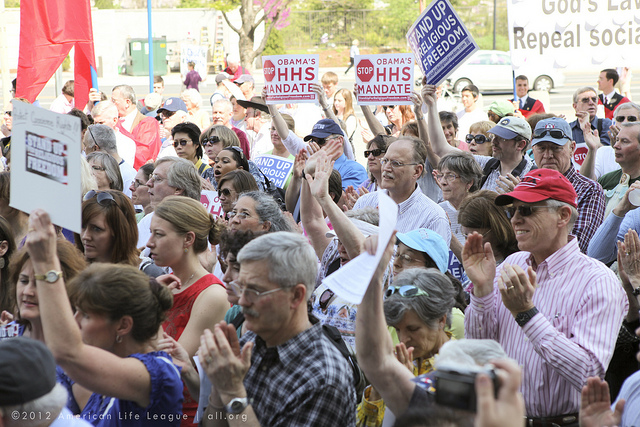The Right to Discriminate
A society is not truly free unless its marketplaces are free. In commerce as in all other areas of life, both parties must consent to the exchange of goods, services, and money. No person has the right to the goods or services of another person. Such demands are paramount to slavery, as they include a recourse to the use of force should one party not comply with the demands of the other. Policies that require the submission of some parties to the will of others go well beyond a government’s mandate to secure the rights of the people living within its domain. Put another way, people have the right to discriminate based on any criteria they may choose.
In fact, one of the rights deeply rooted in America’s founding extends directly to the right to discriminate. As Madison wrote in Federalist 54, “Government is instituted no less for protection of the property, than of the persons, of individuals. The one as well as the other, therefore, may be considered as represented by those who are charged with the government.” In the case of goods, it is quite clear that those produced by a private individual or business belong to the producer unless and until he freely chooses to part with them. Whether he does so out of charity or for compensation, it is his choice alone.
This also extends quite naturally to labor. Following the reasoning of John Locke, one of the greatest influencers of the American founding, a man’s labor is his property, and as such is entitled to the same protection. Such a view is hardly limited to Locke. As Justice Stephen Field wrote in his concurring opinion in Butchers’ Union Co. v. Crescent City Co., “The patrimony of the poor man lies in the strength and dexterity of his own hands, and to hinder his employing this strength and dexterity in what manner he thinks proper, without injury to his neighbor, is a plain violation of this most sacred property.” The fact that government has since infringed upon this basic principle of liberty changes neither its existence nor in its fundamental place in America’s development.
None of this is not to say that those who oppose discrimination in whatever form should not continue to do so. Because rights work both ways, they can exercise their own rights to oppose discrimination, but they must do so without using force, including the force of the government. Speaking out against discrimination, boycotting businesses that discriminate, and perhaps even opening businesses to compete with those that discriminate are all legitimate means of opposing discrimination that can and should be employed.
Ultimately, those employing government to end discrimination do so at their own peril. People seeking to curtail the rights of others end up giving up any claim of rights of their own. Indeed, they lose sight of the very notion of “rights” in favor of the whim of a majority – or perhaps even a vocal minority.
America’s founders made clear the proper role of government, and they violently overthrew a government because it exceeded those boundaries. They understood that rights come from God and that they exist independently of how free people choose to exercise them. It is time for Americans to recognize once again that one person’s opposition to the way another chooses to exercise his rights does not give the first justification to infringe them.







